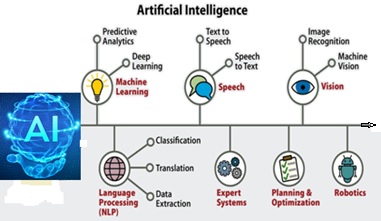 Helsinki, Feb.5 (DPnet).– The Council of Europe and Finland’s Non-discrimination Ombudsman will host a seminar focusing on the human rights implications of artificial intelligence (AI) and automated decision-making in public administration. Speakers include the Head of Hate Speech, Hate Crime and Artificial Intelligence Unit, Council of Europe, Menno Ettema; and Finland’s Non-discrimination Ombudsman, Kristina Stenman alongside researchers and civil society representatives.
Helsinki, Feb.5 (DPnet).– The Council of Europe and Finland’s Non-discrimination Ombudsman will host a seminar focusing on the human rights implications of artificial intelligence (AI) and automated decision-making in public administration. Speakers include the Head of Hate Speech, Hate Crime and Artificial Intelligence Unit, Council of Europe, Menno Ettema; and Finland’s Non-discrimination Ombudsman, Kristina Stenman alongside researchers and civil society representatives.
Discussions will explore case studies, and regulatory frameworks, including the Council of Europe Framework Convention on AI, and the European Union AI Act. The seminar  is organized in the framework of the CoE-EU Technical Support project “Upholding equality and non-discrimination by equality bodies regarding the use of artificial intelligence (AI) in public administrations”, co-funded by the European Union. This European Union–Council of Europe Technical Support project will extend up to 2025 and is expected to strengthen the administrative capacity of the equality bodies with Belgium, Portugal, and Finland as the main beneficiaries.
is organized in the framework of the CoE-EU Technical Support project “Upholding equality and non-discrimination by equality bodies regarding the use of artificial intelligence (AI) in public administrations”, co-funded by the European Union. This European Union–Council of Europe Technical Support project will extend up to 2025 and is expected to strengthen the administrative capacity of the equality bodies with Belgium, Portugal, and Finland as the main beneficiaries.
The seminar can be followed via a livestream (in English and in Finnish):
Contact: Päivi Suhonen, tel. +33 6 69 76 52 89 <paivi.suhonen@coe.int>
Last September the European Commission Vice-President for Values and Transparency, Věra Jourová signed the Council of Europe Framework Convention on Artificial Intelligence and human rights, democracy, and the rule of law on behalf of the European Union. This was done during the informal conference of Ministers of Justice of member states of the Council of Europe in Vilnius, Lithuania. This Convention is the first legally binding international instrument on artificial intelligence.
This Convention is a first-of-its-kind global legally binding instrument designed to ensure that AI upholds common standards in human rights, democracy, and the rule of law, and to minimize the risk of those rights and principles being undermined as a result of the use of AI. It is fully compatible with Union law in general, and the EU AI Act in particular, which is the first comprehensive AI regulation globally, including a number of key concepts of the AI Act such as:
- a focus on human-centric AI, consistent with human rights, democracy, and the rule of law
- a risk-based approach
- key principles for trustworthy AI (e.g. transparency, robustness, safety, data governance, and protection)
- transparency for AI-generated content and interactions with AI systems
strengthened documentation, accountability, and remedies - support to safe innovation through regulatory sandboxes
risk management obligations - documentation obligations
- oversight mechanisms for supervision of AI activities
This is vital to provide an effective framework at the international level to address risks posed by AI to human rights, democracy, and the rule of law.
Comments powered by CComment